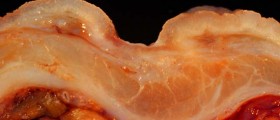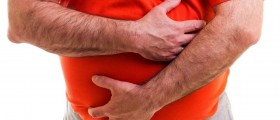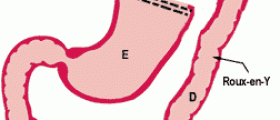
Indigestion or dyspepsia is a general term which refers to discomfort or pain in the upper abdomen. It is a common problem and in the some people indigestion occurs on occasion but there are those who suffer from this condition on a daily bases. However, there are treatments and prevention measures which can be helpful in case of indigestion.
The signs and symptoms of indigestion, besides pain and discomfort in the upper abdomen, may include fullness after eating a little food, burning sensation in the upper abdomen, burping, nausea, gases and bloating. If the symptoms are mild, they can go away on their own after a while. If the symptoms are severe, long-lasting and recurring you should see your doctor. The severe symptoms also include vomiting, loss of appetite, black stool, the skin and eyes turn yellow, sweating, short breath or chest pain.
The causes of indigestion are various. Indigestion can be a consequence of some other gastrointestinal condition or it can be a result of improper eating and drinking habits. The most typical causes are spicy food, greasy food, excessive amounts of chocolate, caffeine, alcohol or carbonated drinks, eating too much or too fast, improperly cooked food, smoking and stress. In some cases indigestion can be caused by stomach acid which is going from the stomach to the throat. This condition can cause inflammation or irritation.
If your condition requires medical attention, the doctor will do a physical examination and, if necessary, he/she may request additional tests in order to determine the cause and treatment for indigestion. The tests may include blood and stool tests, X-ray imaging of your upper abdomen, abdominal CT scan or ultrasound, or endoscopy of the stomach.
The treatment for indigestion is usually related to diet changes, but there are some medications which can be helpful for relieving the symptoms. The most common medications are antacids which can ease the stomach acid. Some other medications may include prokinetics, antibiotics or antidepressants. In order to prevent indigestion you should eat less food, more frequently. You should not eat spicy and greasy food, or drink too much coffee, alcohol and carbonated drinks. It is recommended to exercise moderately and keep your weight normal.
Severe indigestion may lead to complications such as oesophageal stricture, pyloric stenosis or peritonitis. Oesophageal stricture is a consequence of excessive stomach acid in your oesophagus which causes the oesophagus to become scarred and narrowed. You may have difficulties swallowing and chest pain. In order to treat this condition, a surgical procedure which will widen the oesophagus is necessary. Pyloric stenosis is also a consequence of excessive stomach acid. In this case the stomach acid damages your small intestine and usually a surgery is required. Peritonitis is a result of chronic indigestion which causes infection the lining of the intestinal tract. Peritonitis can be treated with medications but a surgery is sometimes performed.
















Your thoughts on this
Loading...